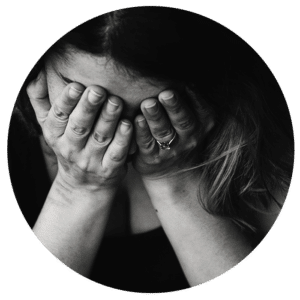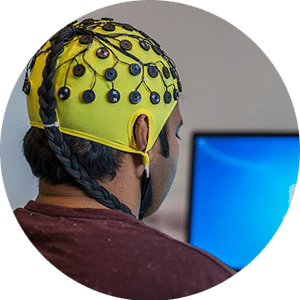Mental Health Therapy in Los Angeles, CA
Mental disorders are the leading cause of poor health/wellness and disability worldwide, affecting a person’s overall mood, thoughts, and behavior. Mental disorders range in levels from mild, moderate, and severe. Mental health therapy at Montare Behavioral Health in Los Angeles, California is here to help those with mental health disorders.
Mental Disorders
Conclusive evidence from various research studies, including Mental Health America (MHA) and SAMHSA, has statistically verified that 450 million people worldwide suffer from some type of mental health or behavioral illness in their lifetime.
In addition, more than half of American adults ages 18 and older currently live with a diagnosable mental health condition in a given year. Today, over 47 million Americans (19%) are experiencing some type of mental illness, 4.55% being severe.
It is important to note that there is no single cause for mental illness, as many biological, psychological, physical, social, and environmental factors can contribute to one developing mental health issues. However there is treatment available for the various types of mental health conditions that people face. Montare Behavioral Health offers various types of mental health therapy here in Los Angeles, California to help treat the different conditions at our treatment center.
Dual Diagnosis
Many people can suffer from more than one mental disorder simultaneously. When people suffer from multiple mental disorders at the same time, it’s considered a dual diagnosis. The most common forms of mental illness that we treat here at Montare Behavioral Health include:
- Depression or Major Depressive Disorder (MDD)
- Anxiety
- Bipolar Disorder
- Personality Disorders
- Schizophrenia
- Post-Traumatic Stress Disorder (PTSD)
- Obsessive-Compulsive Disorder (OCD)
- Eating Disorders
- Attention-Deficit Hyperactivity Disorder (ADHD)
There are many types of mental health services offered here at Montare Behavioral Health. One of these mental health services is individual psychotherapy. Psychotherapy, also known as “talk therapy,” is when a person speaks with a trained therapist in a safe, confidential environment to explore and understand his or her feelings and behaviors. People also attend psychotherapy to gain coping skills.
During individual psychotherapy sessions, the conversation is often led by the therapist. During these conversations, the therapist touches on topics such as the patient’s past or current challenges, experiences, thoughts, feelings, and relationships. The psychotherapist then helps the patient discover why he or she thinks, feels, and experiences relationships and situations the way that he or she does. Psychotherapists will even provide patients with some additional insight into who they are and why they do what they do.
This type of therapy used at Montare in Los Angeles, CA is beneficial. This is because it can help an individual eliminate or take control of problematic symptoms. It can also increase well-being and healing.
Cognitive-Behavioral Therapy (CBT) is one of the most popular types of mental health services. Cognitive-behavioral therapy is a form of psychotherapy, or talk therapy, that dives into a person’s thoughts, beliefs, and attitudes. CBT then notes the connection between that person’s thoughts, feelings, and attitudes, and ultimately, his or her behaviors.
Our cognitive-behavioral therapy in Los Angeles, California aims to enable individuals to create effective coping strategies for learning how to overcome different problems throughout their lives. Thus, creating healthy foundations for understanding how to create lasting change in behavior. This, in turn, is setting individuals up for elongated success on their journeys into sobriety.
Dialectical Behavioral Therapy (DBT) is one of the therapies for mental health that provides clients with new skills to manage painful emotions and decrease conflict in relationships. Dialectical behavior therapy specifically focuses on providing therapeutic skills in four key areas: mindfulness, distress tolerance, emotion regulation, and interpersonal effectiveness.
First, mindfulness focuses on improving an individual’s ability to accept and be present in the current moment. Second, distress tolerance is geared toward increasing a person’s tolerance of negative emotion, rather than trying to escape from it.
Third, emotion regulation covers strategies to manage and change intense emotions that are causing problems in a person’s life. The fourth key area in dialectical behavior therapy is interpersonal effectiveness. Interpersonal effectiveness consists of techniques that allow a person to communicate with others in a way that is assertive, maintains self-respect, and strengthens relationships.
Group Therapy is a form of talk therapy in which one or more therapists treat a small group of clients together as a group. The term “group therapy” can refer to any form of psychotherapy when delivered in a group format, including types of mental health services such as cognitive-behavioral therapy and dialectical behavior therapy. During group therapy, the group context and group process is explicitly utilized as a mechanism of change by developing, exploring, and examining interpersonal relationships within the group.
Mental illness is a disease that affects the entire family. Often, family members need to learn how to establish healthy boundaries with their loved ones that suffer from mental illnesses, while still supporting them. All members of the family system should be a part of their loved one’s recovery no matter what though, as support is one of the most important components in the mental illness healing process.
The goals ofour Los Angeles family therapy are to reunite the family and promote healing through new and positive interactions. To accomplish these goals, the family system must learn specific skills in talk therapy. Regardless of past events, it is our hope that our patients’ experiences bring healing to them and their entire familial units.
Trauma is an emotional response to an experience that is extremely stressful and often disturbing. Traumatic experiences can be scary, shocking, and dangerous. For example, many traumatic experiences include natural disasters, vehicle accidents, assault, robbery, and other crimes. For children, a sibling being born or a parent’s divorce can be traumatic. Some children and adults that experience trauma develop the mental health disorder known as post-traumatic stress disorder.
Childhood trauma, regardless of the type, often follows people into adulthood. There are many types of trauma and they all affect people’s mental health. Sometimes, a form of trauma is part of a co-occurring condition that affects other mental illnesses.
Art therapy seeks to harness the creative art-making process. One of the often-overlooked side-effects of chemical dependency is the destruction of an individual’s natural creativity. Thus, learning to recapture one’s natural creative process can provide immense healing to an individual.
By analyzing the transference process between a therapist and his or her patient, the therapist can identify the patient’s symbolic self-expression as communicated in art. A therapist can also use art therapy in the form of paintings to elicit interpretations from his or her patients. Art therapy usually includes creative workspaces and a variety of art projects.
Meditation is one of the types of mental health services that is holistic. By holistic we mean that it caters to a patient’s mind, body, and soul. Mindful meditation especially aims at bringing inner peace and healing to the mind. It is also meant to help a person focus on what is true about him or herself moment by moment.
Through mindful meditation, individuals are learning to become ever-present within their own realities. Mindful meditation offers a plethora of benefits including decreased stress, an enhanced ability to deal with illness, decreased depressive symptoms, and improved general health.
Music therapy is another one of the therapies for mental health at our treatment center in Los Angeles. This type of therapy is the utilization of both music and musical elements by an accredited musical therapist to promote, maintain, and reestablish emotional, physical, and mental health. Because of music’s many qualities, it can be used to help treat a variety of issues from dealing with mental, behavioral, or emotional problems to relieving stress. Music therapy has even been shown to treat anxiety and depression. Current studies continue to show that music therapy can be successful in treating chemical dependency.
Psychodrama employs guided dramatic action to examine problems or issues raised by an individual or a group. Through utilizing experiential methods, sociometry, role theory, and group dynamics, psychodrama helps individuals discover new insights and integration on cognitive, affective, and behavioral levels. Psychodrama can also provide clarity on issues as well as increasing emotional and physical health. It can even help a person enhancer his or her ability to learn and develop new skill sets.
Holistic healing can include a variety of treatments that seek to target the entirety of the mind, body, and spirit. Such programs seek to teach you how to protect all areas of yourself, be it through the expression of exercises like yoga, mindfulness, and meditation.
Here at Montare BH, we believe in the need to nourish the whole person. Part of that equation involves regular physical fitness at our health centers which allow individuals to focus on creating a positive self-image on both a mental and physical level. Regular exercise increases motivation to maintain a consistent schedule and unlock a healthy perspective on the balance between mental self-care and physical self-care.
Eye Movement Desensitization and Reprocessing (EMDR) therapy is one of the types of mental health services that has been proven to help people recover from trauma, post-traumatic stress disorder, anxiety, depression, and panic disorders. EMDR is a form of talk therapy that’s based on several theories of psychotherapy. It also utilizes sensory input such as eye movements to help people recover from trauma.
EMDR techniques are used to unblock emotional processes that have been held back by distress. When you unblock your emotions, you are able to reprogram your brain and begin to heal from the fear and pain that you’ve associated with trauma and emotional distress.
Neurofeedback is a noninvasive procedure that uses sound and visual signals to reorganize or retrain brain signals. It’s also a therapeutic intervention that provides immediate feedback from a computer-based program.
Neurofeedback assesses a client’s brainwave activity. This approach to treatment is a specific form of biofeedback that uses electronic monitoring of normal body functions to train a person to acquire control of that function.
Neurofeedback is designed to observe, qualify, and train someone’s brain waves to help regulate his or her brain function. By using an electroencephalograph (EEG), the brain is measured, and the electrical activity is documented. That way doctors and therapists can use the information to address any areas of the brain that may be experiencing any emotional dysregulation. The non-invasive procedure that is neurofeedback therapy can give patients and providers a better indicator of what needs to be addressed with any ailments that are in question.
Somatic therapy is one of the types of mental health services that facilitate the resolution of both trauma and post-traumatic stress disorder responses. It engages body awareness as an intervention in psychotherapy. Somatic interventions also address the connections between the brain, the mind, and a person’s behavior through the various therapy sessions here in Los Angeles, CA.
Acupuncture, one of many therapies for mental health, is a common practice in the health care system in China and has been used for over 2,500 years. It involves penetrating the skin with thin, solid, metallic needles which can be activated through gentle movements by the practitioner’s hands or by electric stimulation.
The general theory of acupuncture is based on the idea that there are pathways that create an energy flow through the body (Qi). These pathways are responsible for a person’s overall health. Therefore, any disruption of the patterns can cause disease. Luckily though, acupuncture works to improve the flow of Qi, thus improving one’s health.
The Reality and Prevalence of Mental Health
Awareness of mental illness and the need for treatment has continued to grow in recent years. This is in large part due to education and continued, ongoing discussions about the struggles that people with mental health go through.
Mental health statistics alone show not only the harsh realities and prevalence of these disorders but also the biases that these disorders often have in people’s heads. This is often the reason why an individual’s accessibility to health care becomes more difficult. This is also often the reason why an individual’s accessibility to health care hinders his or her ability to receive the treatment that he or she needs to recover and achieve long-term wellness.
It’s important to always remember, that mental illness is a disease, one that is more prevalent today than ever before. However, sadly, despite the progress that has been made in mental health treatment, many people, 30% to 80% or nearly two-thirds, who need help for mental health issues don’t seek it.
You may be wondering, but, if the subject of mental health is so prevalent, and the access to care is more accessible, then why do relatively few people seek help?
Truth is, oftentimes, individuals struggling with mental health issues don’t see the signs or are in denial that there is something wrong with them. Therefore, mental illnesses are commonly undiagnosed, misdiagnosed, and worse, left untreated. This causes extreme complications mentally, physically, and socially.
According to the World Health Organization (WHO), people with a confirmed mental illness never seek treatment or believe they are unable to receive the proper treatment that they need to manage their condition, due to various circumstances, such as the ones below.








Mental Health Resources
Often individuals may not have access or the means to obtain effective mental health treatment resources. Most don’t for various reasons. These include:
- Lack of finances
- Denial
- Stigma/discrimination
- Wanted help, tried to find it but failed
- Wanted help, but didn’t make an effort to find it
- Biological (genetics): family history of mental health issues, chemical imbalance
- Psychological: Stress and trauma
- Physical: Mental health and physical health are fundamentally linked. Having poor health, as well as, people living with a condition or pre-existing mental illness, are at higher risk of experiencing a wide range of chronic physical conditions.
- Environmental: Triggers of grief, abuse, losing a job, death of a loved one, etc.
As there are various risk factors associated with the predisposition or onset of mental health issues, it is of utmost importance to find a mental health treatment program that specializes in dual diagnosis if that’s what you suffer from. That way, dual diagnosis specialists can find the root of the issue, and discover whether there are any underlying pre-existing conditions that could be contributing to one’s problems.
Being able to recognize the signs that there may be an issue, is the best chance at gaining access to proper mental health resources and professional help. At Montare Behavioral Health, our team of qualified mental health professionals can help you or a loved one seek the professional care needed to properly live and cope healthily with mental illness.
Denial (Anosognosia)
One of the top reasons why people don’t end up seeking help for their mental health disorders is that they are in denial. Some people have what is called anosognosia. This is where people have a lack of insight into their health. In other words, individuals are unable to grasp the reality that they have a mental illness, or simply can’t accept their diagnosis.
Simply, a person with a mental health issue may not believe anything is wrong with him or her, they don’t see or recognize the signs in front of them, or they don’t think they need help. Someone who needs mental health care might not even know that he or she is exhibiting signs of mental illness. After all, symptoms for different conditions are oftentimes very similar, so it can be hard to notice.
While admitting that one has a problem is the first step, but it is not an easy thing to do. Some people may recognize that they have mental health disorders but try to come up with every solution as to why they don’t need help.
Denial is the main reason why people specifically with schizophrenia or bipolar disorder refuse to take their medications or do not seek treatment. Whatever the case may be, everyone is different, therefore, no one can compare his or her situation to another person’s situation.
Finances
Finances are one of the top reasons why people don’t seek treatment for their mental health disorders. A study found that individuals with depression and anxiety were three times more likely to be in debt and also attempt suicide.
People who are struggling financially tend to sadly skip out on receiving the treatment they need because of medical expenses. This is especially true for lower-income populations.
Although most insurance companies cover the cost of treatment for mental illness to some degree, not everyone has the means or the best insurance policy. Mental Health America’s statistics for mental illness show that 5.3 million adults in the United States with mental illness are uninsured. This stops 24.6 million (56%) people from receiving any mental health care.
Young adults are at a higher risk of developing mental health issues. Young adults also often suffer from untreated or undiagnosed mental health disorders. Unfortunately, young adults also often experience difficulties making money decisions and the life-saving decision to get help.
Stigma
Despite there finally being more of an open discussion surrounding mental health care and treatment, people are still afraid of being stigmatized (discriminated against) if they admit that they need mental health treatment.
Mental illness is not a weakness, but those who suffer from it often see themselves as weak or less than. Low self-esteem makes a person struggling with mental illness even more unsure of his or her condition. This makes it even more difficult for a person to admit that he or she is suffering from mental health issues to anyone, including family, friends, a doctor, and even him or herself.
Having a condition such as depression makes doing any kind of task difficult even if it’s just talking to someone in talk therapy. Thus, many people that suffer from depression struggle to make an appointment at a mental health facility or with a therapist.
The last thing someone who is depressed or anxious often wants to do is talk about his or her depression or anxiety in talk therapy, but the truth is, doing so is often a cathartic release.
It can be difficult taking the initiative to seek treatment on one’s own. That’s why a support system, especially one with people in it from a mental health treatment program, is a great form of care for someone that suffers from mental illness.
Having support from other people who’ve struggled with similar issues is an excellent resource of knowledge, self-reflection, and understanding. Also, having support from other people who suffer from mental illness can help people with mental health disorders know that they are not alone.
Expectations of Therapy for Mental Health
There are a lot of things seen in the media (movies and TV) regarding the portrayal of mental illness and what a mental healthcare facility is like. But, as they say, don’t always believe what you see.
A reason why people don’t seek treatment for mental illness is that they are either scared, don’t know what to expect, or a little bit of both. Thankfully, there are resources and support available to help educate people about mental health and mental health resources such as professional support groups and talk therapy.
There is already a wealth of information available in the world to help guide people who are suffering from mental illness, including friends and family who need to find effective mental health treatment. While there are also misinformation and myths regarding mental health, one must do his or her best to dispel those myths and decipher between fact and fiction.
At the end of the day though, mental health professionals will always be the best source when it comes to mental health news and talk therapy. This is because mental health professionals are trained to know how to deal with various types of people and mental disorders. Therefore, mental health professionals know what treatments will suit someone best long term. Always consult your doctor for information on mental health treatment, as it will produce the best outcome.
How are Mental Disorders Diagnosed?
At Montare Behavioral Health, we have a comprehensive process to help us to reach an accurate mental health diagnosis. Our team starts by giving people a psychological evaluation, where they will answer a series of questions about their thoughts, feelings, and behaviors.
Each person’s medical history will also be evaluated to discover the details behind his or her prognosis or if he or she has any health conditions, genetic predispositions, or family history of mental illness that could be a contributing factor to the development of his or her condition. A physical exam and possible lab tests may also be performed if a person’s healthcare provider thinks that other underlying conditions could be causing him or her to experience symptoms of mental illness.
How Does Mental Health Therapy in Los Angeles Work?
It is well documented that mental illness can negatively affect all aspects of one’s life and body, including one’s brain, body, health, relationships, etc. It is a cycle that won’t end without professional intervention and treatment. Montare Behavioral Health offers many different types of therapy to help individualize treatment here in Los Angeles, CA.
As mentioned before, a very small percentage of people receive treatment for their mental illnesses. The reason for this is that many mental health treatment programs try to solely treat people’s mental illnesses without treating the underlying or contributing conditions that are at the root of these mental illnesses. For example, some mental health treatment facilities may fail to look at chronic conditions or genetic predispositions (family history of mental illness) that are at the root of people’s mental health issues.
At Montare Behavioral Health, our various mental health treatment programs and services continue to help people from all walks of life who are suffering from mental illnesses. We aim to continue to change this and make healthcare for mental illness as accessible as possible.
How Are Mental Disorders Treated?
Treatment for mental health conditions depends on which type of mental health disorder a person has, how severe it is, and if there may be any underlying causes, such as a chronic condition. If you or a loved one is suffering from one of the common mental disorders, and also have failed to find accessible and effective mental health treatment, know that you’re not alone!
Luckily though, here at Montare BH, we offer countless types of mental health services. As a result, we are able to create customized treatment plans to help treat the needs of individuals suffering from mental illnesses. This means that our specialists will work with you on creating a treatment plan tailored to your individual needs. Everyone is different and responds to treatments uniquely, so, treatment methods chosen will vary greatly.
Inpatient and Outpatient Treatment for Mental Health
People’s mental healthcare regimen can include around-the-clock care in an inpatient mental health facility for more severe cases of illness, which entails, therapy/counseling, medication management, group discussions, and activities with mental health professionals and other patients.
For people who transition out of a residential facility and can live more independently, outpatient treatment for mental health can help treat more mild cases of mental illness. Outpatient mental health treatment can also help people learn how to better manage and cope with their conditions. In other words, some people may need social support and education on managing their conditions, while others will need to be more isolated and monitored more frequently to achieve optimal wellness.
Our team’s main goal is to help get each individual on the road to recovery, by teaching him or her coping skills. In doing this, we aim for all of our patients to be able to live healthy and optimal lifestyles. Here at Montare Behavioral Health, we are devoted to treating mental illness with talk therapy and other state-of-the-art treatment methods.
Begin Mental Health Therapy in Los Angeles, California
Here at Montare Behavioral Health in Los Angeles and other parts of California, it is our job to help find the root of our patients’ mental health issues, treat all of our patients’ issues, and use forms of talk therapy and various other programs and counseling sessions to get our patients’ lives back on track.
Check out our locations to see what mental health treatments we offer. If you or a loved one is suffering from mental illness, call us for free today to learn more about our mental health services and admissions process, and see what’s right for you.






































